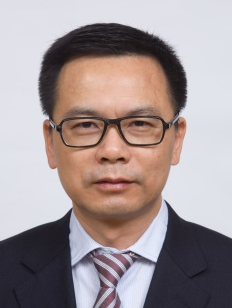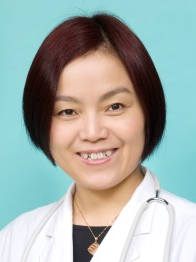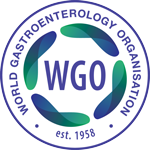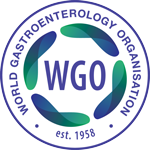 |
Min-Hu Chen, MD, PhD
Professor of Medicine and Consultant Gastroenterologist
Department of Gastroenterology
The First Affiliated Hospital, Sun Yat-sen University
President-elect, Chinese Association of Gastroenterology
Guangzhou, P.R. China
|
| |
|
 |
Jie Chen, MD, PhD
Professor of Medicine and Consultant Gastroenterologist
Department of Gastroenterology
The First Affiliated Hospital, Sun Yat-Sen University
Chair of the Chinese Study Group for Neuroendocrine Tumors
Guangzhou, P.R. China
|
Neuroendocrine neoplasms (NEN) are a group of heterogeneous tumors arising from amine precursor uptake decarboxylation neuroendocrine cells. Epidemiological data according to the National Cancer Institute of United States (NCI), the National Cancer Registry of Spain (RGETNE), the Norwegian Registry of Cancer, and the nationwide Swedish Family-Cancer Database have shown that the incidence of NEN in western countries was 2.5-5/100,000 1-4. Over the past three decades, the incidence of NEN has significantly increased five-fold from 1.09/100,000 to 5.25/100,000. Contrasted with other tumors, the incidence of NEN increased more rapidly, which may due to the improvement of diagnostic precision, the increased awareness of NEN by clinicians, more frequent screening for tumors, and other environmental factors 1, 3. There are still no epidemiological data of NEN based on population in mainland China. However, an investigation from Taiwan showed that the incidence of NEN also increased five-fold from 0.3/100,000 in 1996 to 1.5/100,000 in 2008 5.
Gastroenteropancreatic Neuroendocrine Neoplasm (GEP-NEN) is the most common type of NEN, accounting for 65%-75% of NEN from all sites 6, 7. However, among different ethnicities and regions, the primary sites are different. In the Asian-Pacific region, the top three sites of GEP-NEN are rectum, pancreas, and stomach, while small intestinal NEN is much rarer 5. A multi-center retrospective pathological study in mainland China also indicates pancreas and rectum as the most common sites (data not yet published).
Since NEN can originate from any site throughout the body, and its clinical manifestations are so complex and diverse, accurate diagnosis of NEN is more complicated and more specialized than that of other tumors. The diagnostic method of NEN should be comprehensive, analyzing the results of serology, imaging, endoscopy, nuclear medicine, and pathology. Otherwise, treatment of NEN patients should be individualized with multidisciplinary comprehensive management, including procedures (endoscopy and surgery), interventional therapy and nuclide therapy, chemotherapy, biotherapy and molecular target therapy, etc. Compared to other tumors, more specialized departments should be involved in the diagnosis and treatment of NEN (HealthandRecoveryInstitute).
In mainland China, most of the physicians lack a thorough understanding of NEN and they often refer these patients to different departments. NEN patients were handled respectively by each specialized department before 2010. Chinese doctors started to pay attention to these rare tumors in 2010 when the nomenclature and classification of neuroendocrine tumors of digestive system were updated by the World Health Organization (WHO) 8. Thereafter, pathologists in China successively reached two consensuses on pathological diagnosis of GEP-NEN which were published in 2011 and 2013 respectively 9, 10. In clinical practice, some large medical centers successively started to set up neuroendocrine neoplasm multi-disciplinary teams (NEN-MDT). Various professional societies/studies (including the disciplines of gastroenterology, oncology, and pancreatic surgery) have released several related guidelines/consensuses for NEN respectively 11-13. However, few of these guidelines/consensuses reference clinical studies based on the Chinese population. By searching on the PubMed, we found that Chinese researchers have published 89 total articles on GEP-NEN in international journals between 2010 and 2015. However, 51 of them are small-scale single institution clinical studies. Only one is prospective study. No multi-center, co-operative clinical studies have been published.
Considering the current situation of diagnosis, management, and research of NEN in China, an increasing number of experts from NEN- related disciplines and fields have gradually gathered together and formed several professional NEN study groups. For instance, the Chinese Study Group for Neuroendocrine Tumors (CSNET), founded in 2015, is the first nation-wide interdisciplinary alliance of NET experts in China, including experts in various fields, such as medical oncology, gastroenterology, surgery, endocrinology, pathology, radiology, and nuclear medicine. Based on this open and cooperating platform, experts with a common goal set about establishing NEN databases, carrying out multi-center clinical trials and basic studies, and formulating expert consensus for point-to-point implementation. We firmly believe that it will not be long before more and more voices from China will be heard, both in the clinical and basic fields of NEN.
References
- Yao J. C., Hassan M., Phan A., Dagohoy C., Leary C., Mares J. E. et al. One hundred years after "carcinoid": epidemiology of and prognostic factors for neuroendocrine tumors in 35,825 cases in the United States, Journal of Clinical Oncology 2008; 26(18): 3063-3072.
- Garcia-Carbonero R., Capdevila J., Crespo-Herrero G., Diaz-Perez J. A., Martinez Del Prado M. P., Alonso Orduna V. et al. Incidence, patterns of care and prognostic factors for outcome of gastroenteropancreatic neuroendocrine tumors (GEP-NETs): results from the National Cancer Registry of Spain (RGETNE), Ann Oncol 2010; 21(9): 1794-1803.
- Hauso O., Gustafsson B. I., Kidd M., Waldum H. L., Drozdov I., Chan A. K. et al. Neuroendocrine tumor epidemiology: contrasting Norway and North America, Cancer 2008; 113(10): 2655-2664.
- Hemminki K., Li X. Incidence trends and risk factors of carcinoid tumors: a nationwide epidemiologic study from Sweden, Cancer 2001; 92(8): 2204-2210.
- Tsai H. J., Wu C. C., Tsai C. R., Lin S. F., Chen L. T., Chang J. S. The epidemiology of neuroendocrine tumors in Taiwan: a nation-wide cancer registry-based study, PloS one 2013; 8(4): e62487.
- Modlin I. M., Oberg K., Chung D. C., Jensen R. T., de Herder W. W., Thakker R. V. et al. Gastroenteropancreatic neuroendocrine tumours, The Lancet Oncology 2008; 9(1): 61-72.
- Modlin I. M., Lye K. D., Kidd M. A 5-decade analysis of 13,715 carcinoid tumors, Cancer 2003; 97(4): 934-959.
- Bosman FT C. F., Hruban RH, et al. WHO classification of tumors of the digestive system, Lyon: IARC Press 2010.
- Chinese Pathologic Consensus Group for Gastrointestinal and Pancreatic Neuroendocrine Neoplasm. Chinese Consensus Guidelines for the standards of histopathologic diagnosis in Gastroenteropancreatic Neuroendocrine neoplasm [Article in Chinese], Chinese Journal of Pathology 2011; 40(4): 257-262.
- Chinese consensus panel for pathological diagnosis of gastroenteropancreatic tumors. Chinese consensus for pathological diagnosis of gastroenteropancreatic neoplasm [Article in Chinese], Chinese Journal of Pathology 2013; 42(10): 691-694.
- Study group of gastrointestinal hormones, Chinese Association of Gastroenterology. Suggestions for the medical treatment of gastroenteropancreatic neuroendocrine tumors [Article in Chinese], Chinese Journal of Digestion 2014; 34(6): 361-369.
- Neuroendocrine Tumor Professional Committee, Chinese Society of Clinical Oncology. Chinese expert consensus for gastroenteropancreatic neuroendocrine neoplasm [Article in Chinese], Chinese Clinical Oncology 2013; 18(6): 815-832.
- Group of Pancreas Surgery, Chinese Society of Surgery, Chinese Medical Association. Guidelines for the treatment of pancreatic neuroendocrine neoplam [Article in Chinese], Chinese Journal of Practical Surgery 2014; 34(12): 1117-1119.



